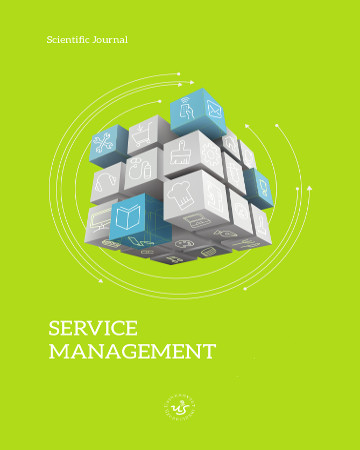
ISSN: 1898-0511
eISSN: 2353-2858
OAI
DOI: 10.18276/smt.2015.15-04


Lista wydań /
Vol. 15, 1/2015
Intellectual capital in non-public higher education institutions – the managerial perspective
| Autorzy: |
Jan
Fazlagić
Poznan University of Economics |
| Słowa kluczowe: | Intellectual Capital Higher Education Institutions Knowledge Management |
| Data publikacji całości: | 2015 |
| Liczba stron: | 9 (31-39) |
Abstrakt
In the new knowledge-based economy intellectual capital has become the key asset for sustainability and achieving competitive advantage. “Knowledge” is the main output as well as input in these institutions. This research paper presents the research findings describing selected elements of intellectual capital (IC) in non-public higher education institutions in Poland, namely students and managers of higher education institutions. A review of definitions of IC is provided accompanied by comments relating to the situation of higher education institutions. Better management practice regarding IC allow universities to be in a better position to compete globally and in the home market.
Pobierz plik
Plik artykułu
Bibliografia
| 1. | Bennennetot Pruvo E., Estermann T., Mason P. (2015), Define Thematic Report: University Mergers in Europe, European University Association. |
| 2. | Choong, K.K. (2008), Intellectual capital: definitions, categorization and reporting models, Journal of Intellectual Capital, Vol. 9 No. 4, pp. 609-638. |
| 3. | Clark, B.R. (1983), The Higher Education Systems. Berkeley, California: University of California Press. |
| 4. | Freiberg K., Freiberg, J., (1996), Nuts! Southwest Airlines' Crazy Recipe for Business and Personal Success. Bard Press, New York. |
| 5. | Gittel J.H., (2003), The Southwest Airlines Way, Mc-Graw-Hill, New York. |
| 6. | Gummesson E., (1999), Total Relationship Marketing, Butterworth-Heinemann, Oxford. |
| 7. | Sveiby, KE. (1997), The New Organizational Wealth: Managing and Measuring Knowledge-based Asset, Berrett-Koehler, San Francisco. |
| 8. | Sveiby KE, (2001), A Knowledge-based Theory of the Firm To guide Strategy Formulation, Journal of Intellectual Capital, no. 2/4. |
| 9. | Tobin, J. (1969) “A general equilibrium approach to monetary theory”, Journal of Money Credit and banking, vol. 1, no. 1 (Feb., 1969). |